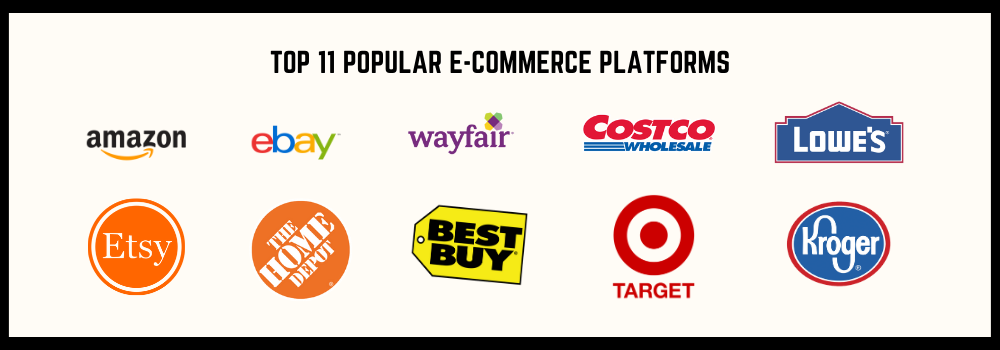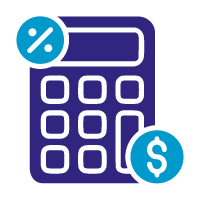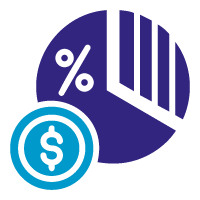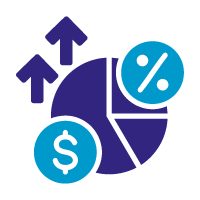In This Blog Post
Share This Article
- Published: Jan 31, 2023
- Last Updated: Apr 8, 2025
- 🔊 Listen
In this age of digitization, almost everything has gone online. The same is the case with businesses as well. Online marketplaces are one of the most popular and preferred methods to conduct business these days. Be it a B2B or B2C business, the convenience offered by online marketplaces or e-commerce platforms has proven more beneficial to businesses and customers. It has allowed businesses to increase their reach worldwide. However, this worldwide expansion has also complicated the accounting and bookkeeping for e-commerce businesses. Fortunately, as a business owner, you can deal with challenges in bookkeeping for e-commerce businesses by following some simple steps like choosing the right accounting and bookkeeping software, regular data reconciliation, etc. Also, there are different types of e-commerce platforms that you can choose from for your business based on your business type, requirements, and budget that will impact your accounting process. Nonetheless, before focusing on accounting for e-commerce, you must know about the different e-commerce platforms available to launch your online business. Let us dive in to learn about what an e-commerce platform means, the different types, and the top e-commerce platforms available in the USA.
Meaning and Types of an E-commerce Platform For Businesses
An e-commerce platform is essentially software that allows businesses and customers to sell and purchase goods and services over the internet. It provides a CMS (Content Management System) and website, enabling businesses to manage products, register purchases, and establish customer relationships. Since customers these days prefer to meet and shop online, having the right e-commerce platform to host the business is crucial.
Once you decide to conduct your business through an e-commerce platform, it is important to choose the right type of platform to get the best benefits for your business. When it comes to e-commerce platform types, there are three types of platforms that you can choose from for your business. Let us know the different types of e-commerce platforms that business owners can use to host their businesses.
- Open-source: Open-source platform is a type of platform based on open-source software, which means that the source code is freely available and can be modified to meet the specific needs of a business. Open-source e-commerce platforms provide businesses with a cost-effective and flexible solution for setting up an online store. They offer several advantages, including the ability to customize the look and feel of the store and its functionality. Additionally, open-source e-commerce platforms are often more scalable than proprietary solutions, meaning they can grow with a business as it expands. Some of the popular open source e-commerce platforms are – WooCommerce and Adobe Commerce (Magento).
- SaaS (Software as a Service): The SaaS e-commerce platform is a cloud-based software solution that enables businesses to create and efficiently manage their online stores. It offers a wide range of features and tools businesses can use to build and customize an online store, including a shopping cart, payment gateway, order management, and product catalog. A SaaS e-commerce platform is usually sold to the users on a subscription basis, with some software offering free trials before the paid version. Some examples of SaaS based e-commerce platforms include Shopify, BigCommerce, and Wix.
- Headless commerce: Headless commerce is a popular term in the e-commerce industry and refers to a type of architecture where the front-end and back-end of an e-commerce store are decoupled. It means that the front-end can be built using any technology without being limited by the back-end. Headless commerce offers several advantages, including greater flexibility, improved performance, and a better user experience. It also allows for more innovation on the front-end, as well as easier integration with third-party applications.
Top 11 E-commerce Platforms in the USA
E-commerce has been on the rise for some time now, but more and more businesses are choosing to take advantage of this digital phenomenon. From small businesses to large corporations, there is no denying that e-commerce is a powerful force in modern retail. Let us look at 11 top e-commerce platforms driving successful businesses in the United States.
- Amazon: Amazon is the USA’s largest and most popular e-commerce platform. It was founded in 1994 and has since expanded to sell a wide variety of products and services, including electronics, apparel, home goods, food, and more. Some key features that make Amazon so popular are its easy-to-use website and app, its vast selection of products, its competitive prices, and its Prime shipping program, which offers free 2-day shipping on millions of items. Amazon also offers a convenient return policy, making it easy for customers to return items if they are unsatisfied. If you choose Amazon as a platform for your e-commerce business, you might also want to know the accounting requirements for businesses on Amazon. You can learn about it in our blog: “Accounting for Amazon sellers”.
- eBay: eBay is one of the USA’s oldest and most popular e-commerce platforms. Founded in 1995, it allows users to buy and sell items online. eBay is a great platform for buyers and sellers, as it offers a wide variety of products and services at reasonable prices. eBay also has a strong customer service team that can help with any issues that may arise.
- Walmart: Walmart was founded in the year 1962 and is one of the largest e-commerce platforms in the United States. The company operates through many different websites, including its flagship site, Walmart.com. Walmart offers a wide range of products and services, including groceries, electronics, home goods, and more. The company also has a strong focus on providing excellent customer service. Walmart is also now offering more competitive prices on many items, which has helped attract more customers.
- Etsy: Etsy is an online marketplace that allows the sale and purchase of handmade and vintage items. It was founded in 2005 and has since become a popular platform for small businesses and individual sellers. The site is easy to use and has a wide variety of products available. In addition, it offers a wide range of marketing and promotional tools to help sellers promote their businesses. The sellers can set up their own shops and customize their products.
- Target: Target is a popular department store chain in the United States. Founded in 1902, Target has over 1,800 stores across the country. Target offers a wide variety of products, including clothing, home goods, electronics, and more. Target is also known for its competitive prices and exclusive partnerships with brands like Missoni and Lilly Pulitzer. In recent years, Target has been expanding its reach by opening smaller-format stores and launching an e-commerce site.
- Home Depot: Home Depot is one of the biggest home improvement stores in the USA that was established in 1978. They offer a wide range of home interior and exterior products, gardens, and improvements, making it a great one-stop shop for all your needs. Home Depot also offers an online platform to buy items and have them delivered to your home.
- Wayfair: Wayfair is an American online store that specializes in home furnishings and decor. Founded in 2002, Wayfair has quickly become one of the leading e-commerce platforms in the United States. Wayfair offers customers a wide selection of furniture, decor, and home improvement items. In addition to its extensive product offerings, Wayfair also provides customers with helpful tools and resources to make shopping for their homes easier and more enjoyable. One thing that makes Wayfair stand out as an e-commerce platform is its dedication to providing a great customer experience.
- Best Buy: Best Buy is one of the leading e-commerce platforms in the USA, founded in 1966. It has a wide range of products and services and offers excellent customer service. The products offered by Best Buy include electronics, furniture, consumer appliances, baby products, travel items, fitness products, etc. Best Buy also offers a great return policy and free shipping on many items.
- Costco: Costco is an American chain of membership-only warehouses founded in 1983. As of 2020, Costco was the second largest retailer in the world after Walmart. Costco’s business model is based on offering its members low prices on bulk items. Memberships are required to shop at Costco and are available either as an annual membership or a monthly membership. In addition to its warehouse locations, Costco also operates an online store, which offers a wide selection of merchandise that can be shipped to locations across the United States. Costco also offers a variety of services, including gas stations, pharmacies, optical centers, travel agencies, and more.
- Lowe’s: According to Statista, Lowe’s is the second-largest home improvement retailer in the United States, behind only The Home Depot. Founded in 1946, Lowe’s offers an extensive range of products for home improvement, including appliances, tools, hardware, and more. Customers can shop online or in-store, and Lowe’s offers delivery and installation services for certain products. Lowe’s also has a loyalty program called “MyLowe’s,” which gives members exclusive discounts and coupons, as well as early access to sales and special events.
- Kroger: Kroger is one of the largest grocery stores in the United States, established in 1883. Kroger also has an e-commerce platform that sells groceries online. The Kroger e-commerce platform offers a wide variety of food and household items, including fresh produce, meat, seafood, dairy, frozen foods, and more. Customers can order online and pick up their orders at their local Kroger store.
Conclusion
As e-commerce continues to grow, businesses must ensure they have the right platform to manage their digital stores. Each business needs to identify which platform works best for them; it may be a combination of multiple solutions, but understanding your unique needs will help narrow down your choices. With a reliable and easy-to-use platform, businesses can focus on what really matters – selling their products and services efficiently and successfully.
Apart from finding the best e-commerce platform for your business, it is also important to efficiently manage your accounting and bookkeeping for e-commerce to make your business successful. However, it is a complicated and time-consuming task that can become a humongous issue when you combine it with the task of managing the business. Therefore, the best option is to hire help from outsourced accounting and bookkeeping service providers specializing in e-commerce accounting. These service providers help businesses save time, resources, and costs by properly managing finances and numerous accounting functions.
We at Whiz Consulting offer top-notch accounting and bookkeeping services to businesses from varied industries, including bookkeeping and accounting for e-commerce. Our expert professionals help businesses keep their finances in order, so they can focus on growing their business without worrying about accounting and bookkeeping processes. Contact us if you are looking for a service provider offering bookkeeping and accounting for e-commerce businesses.

Get customized plan that supports your growth













